
Do you often struggle with stress and anxiety? Are you constantly on the lookout for new, creative hobbies? Outlets like painting can work wonders for your mental health.
We think everyone should try painting at least once in their adult life – it’s a wonderfully joyous pastime that promotes positive emotional wellbeing and helps you deal with stress in productive ways.
Here are the top 13 ways that painting benefits your mental health. Paintbrushes at the ready!
1. Gives you the chance to hone in on your creativity
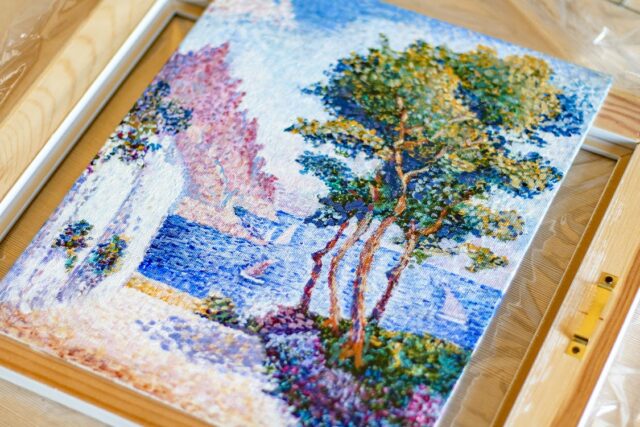
Painting fosters creativity in so many different ways. Even artistic, left-brain people will find their creativity starts to boom when they regularly pick up a paintbrush.
It’s important you nurture the creative spirit inside yourself and exercise the right side of your brain. Stimulate your imagination – who knows what will happen?
If you’re unsure how to start your painting journey, try a custom paint by justpaintbynumber.com numbers kit to start with. You can even paint your very own personalized photo.
2. Provides a safe space for emotional wellbeing
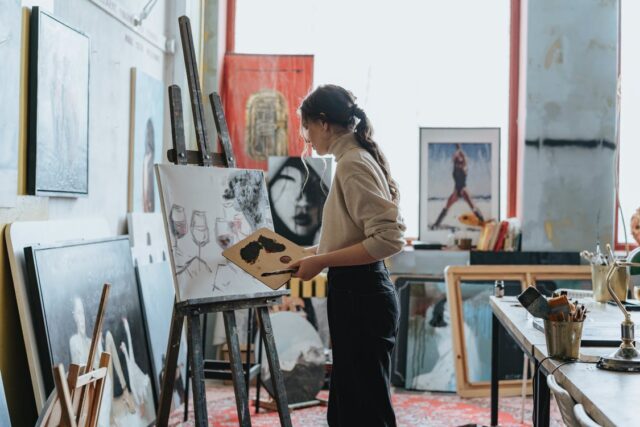
If you want to get into painting, make sure you create a safe, comfortable, and happy workspace for yourself. Find a place inside the home that’s full of natural light, and set up an easel or desk for you to work from.
Having a non-threatening space means you can use painting as a cathartic experience. If you’ve previously suffered psychological trauma, art therapy can help you deal with the sadness and anguish you’ve locked away inside. Positive emotional wellbeing comes when you face your emotions head-on in creative or productive ways.
3. Improves your problem-solving skills
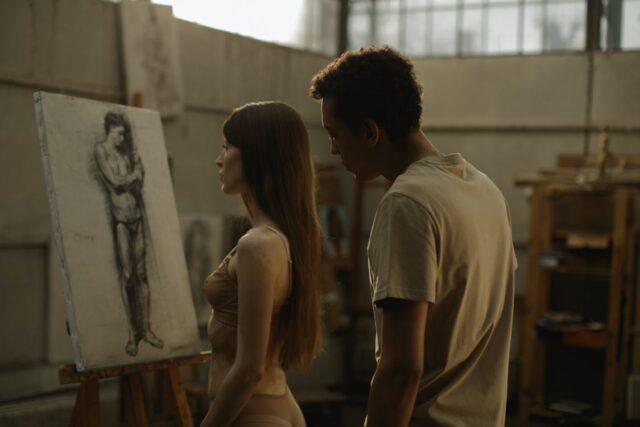
Learning how to paint isn’t particularly easy, but it’s a skill that you can master with the right critical thinking. An artist’s imagination is genius – especially when they encounter a problem with their painting and have to find the solution to fix it.
Just remember, painting is a trial and error process. Try not to feel frustrated or disappointed when things don’t go the way you planned. Tap into your creative problem-solving skills by trusting your instincts and thinking outside the box.
4. Great for your memory
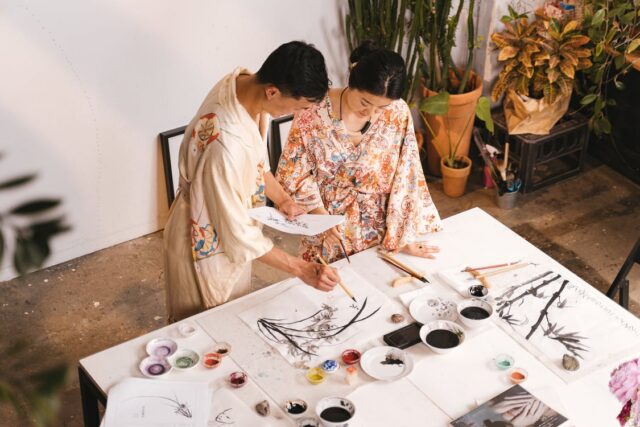
Believe it or not, but painting also boosts memory and concentration. Some of the world’s sharpest minds belong to artists. The creative brain is a powerful thing!
In fact, many scientific studies show that creative people who paint regularly are less likely to develop Alzheimer’s and dementia in later life. So, not only is painting a fun hobby, but it can actually help look after your brain as you get older.
5. Enhances your social skills

As you get better at staying in touch with your own feelings, painting also helps you communicate better with others too.
Have you considered joining a painting club? Painting in groups can help you make friends and improve your interpersonal social skills. You can share painting tips and tricks, and find common interests amongst your peers.
6. Perfect for relieving stress
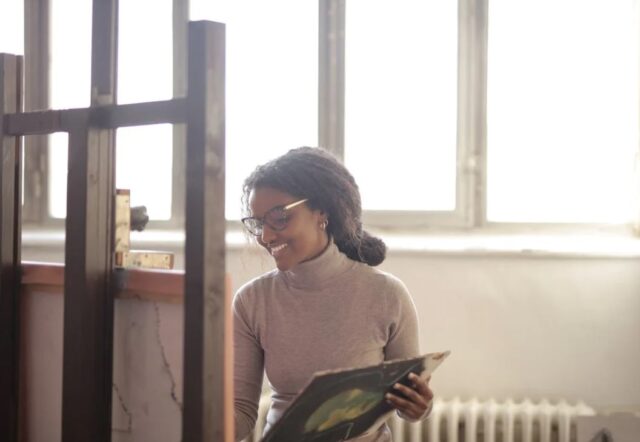
Painting also works wonders when it comes to stress. In fact, any kind of creative hobby can promote stress relief. Creativity helps take your mind off life’s woes and worries.
It’s important you let go of and escape from the things that might be getting you down – painting provides you with these stress-combatting tools. Having that go-to emotional release output means you can deal with daily stresses quickly and easily.
7. Helps you to relax
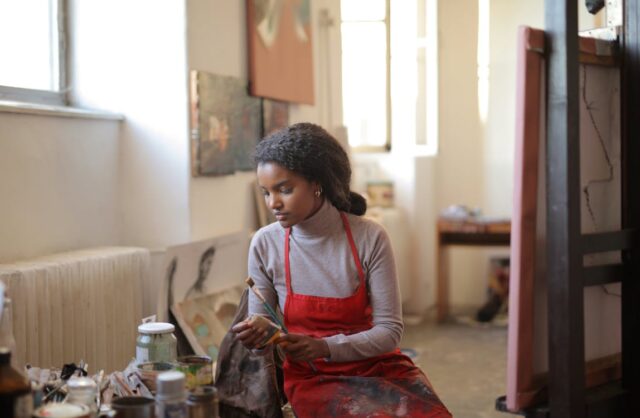
Painting is a therapeutic experience – a way to stay calm and grounded. Plus, not only does it allow you to unwind emotionally, but some scientific studies show that painting helps relieve physical tension in your body’s joints and muscles.
8. Chance to practice mindfulness
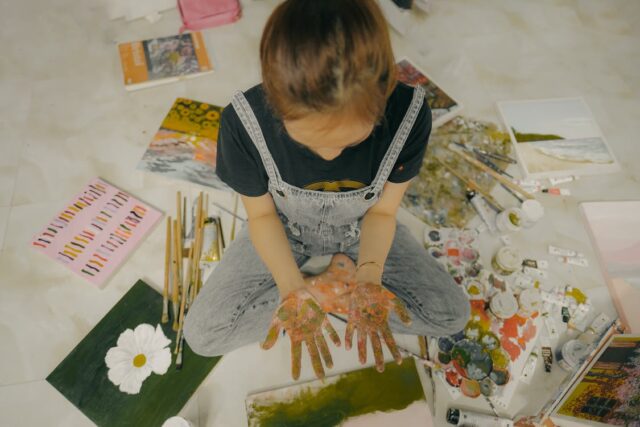
Painting gives you an opportunity to meditate. Time to switch off from the rest of the world and free yourself from the pressures of work, family, relationships, etc.
Next time you sit down to paint, try focussing on the present moment only. Art meditation is a wonderful way of calming your mind, body, and soul. Don’t worry – intrusive thoughts are perfectly natural. It takes time to learn how to truly disconnect from the world through good meditation.
9. Keeps you feeling positive
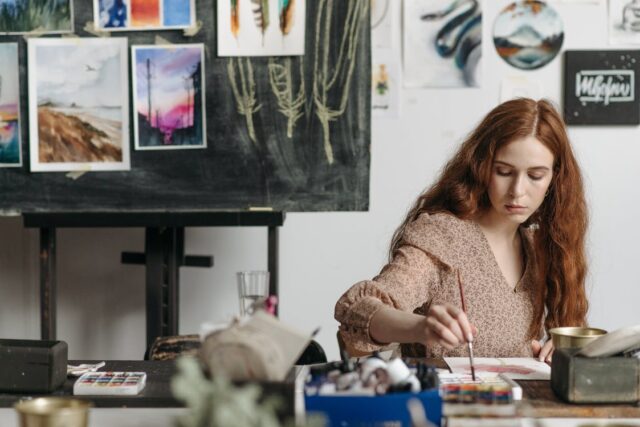
It’s hard to maintain an optimistic state of mind in this day and age – but painting can help.
No matter whether you’re painting a landscape or a portrait, you’ll start to notice the true beauty hidden in life, places, and people. Painting gives you a new appreciation for the lovely things around you. Expel your negative thoughts and emotions through simple pleasures.
10. More in touch with your emotions
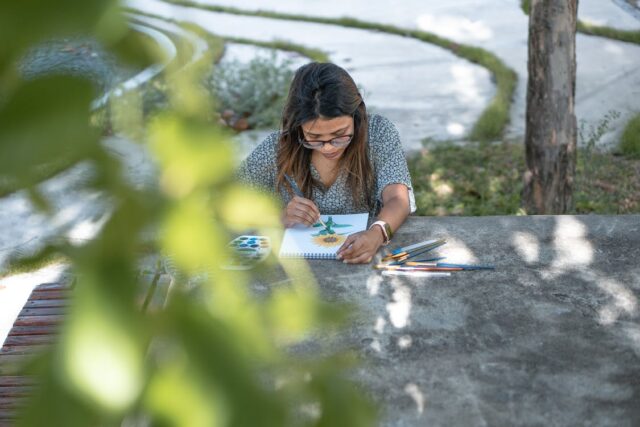
Painting allows you to access your deepest, darkest feelings buried within your subconscious brain. Creative people tend to have a higher level of emotional intelligence – simply because they regularly keep in touch with their moods and stresses.
By pouring your feelings into your painting, you can start to notice and understand the specific emotional state you’re experiencing – happiness, anger, sadness, love, or something else.
11. Connects you with cultures and religions
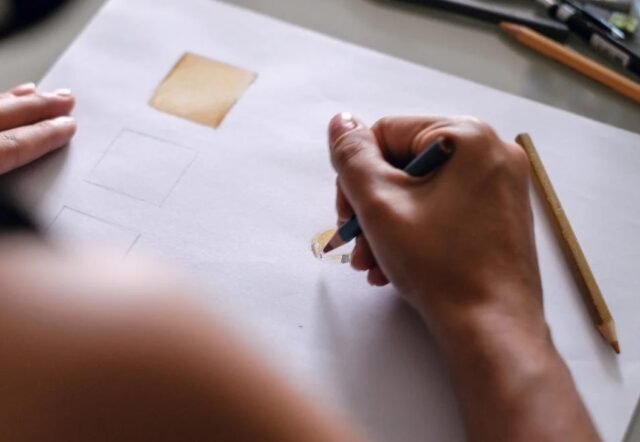
Painting is a form of connection with the world – especially if you study modern art or art history. You’ll appreciate the skill and knowledge that goes into the very best painting masterpieces.
12. Builds your confidence
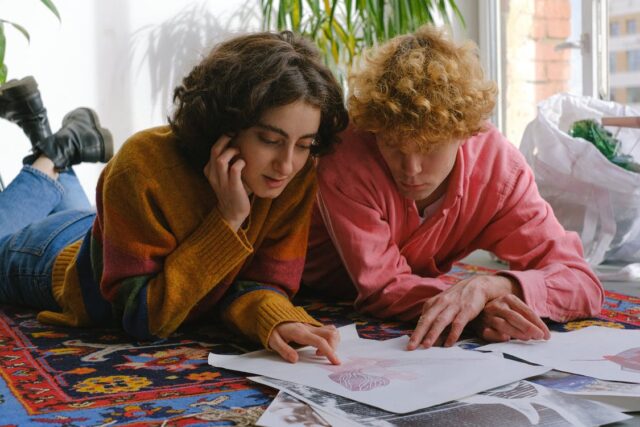
It feels amazing when you’ve finally finished a piece you’ve been working on for a while.
Your confidence will blossom.
Your self-esteem will grow even bigger if you get positive feedback from your peers, friends, or family. And this will give you the self-assurance that you need in your personal life too.
13. Helps to build self-perseverance
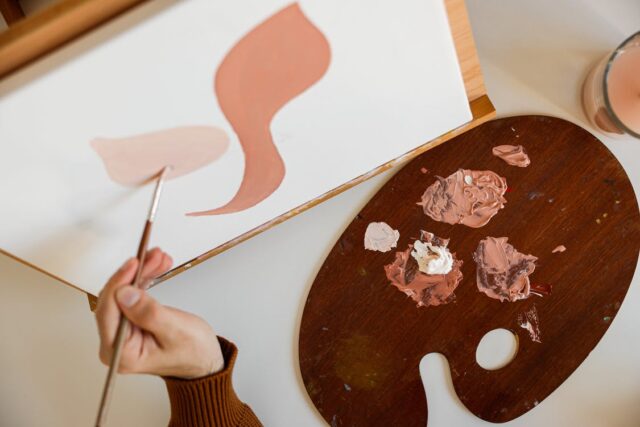
Painting is a long process – it can take weeks, months, even years to finish a large piece.
So set out a long-term goal and make it happen. Keep persevering until you’re happy with the final result.
Just remember not to be overly self-critical. Learning to paint is a continuous process.
Even the world’s most renowned painters started off as amateurs.









